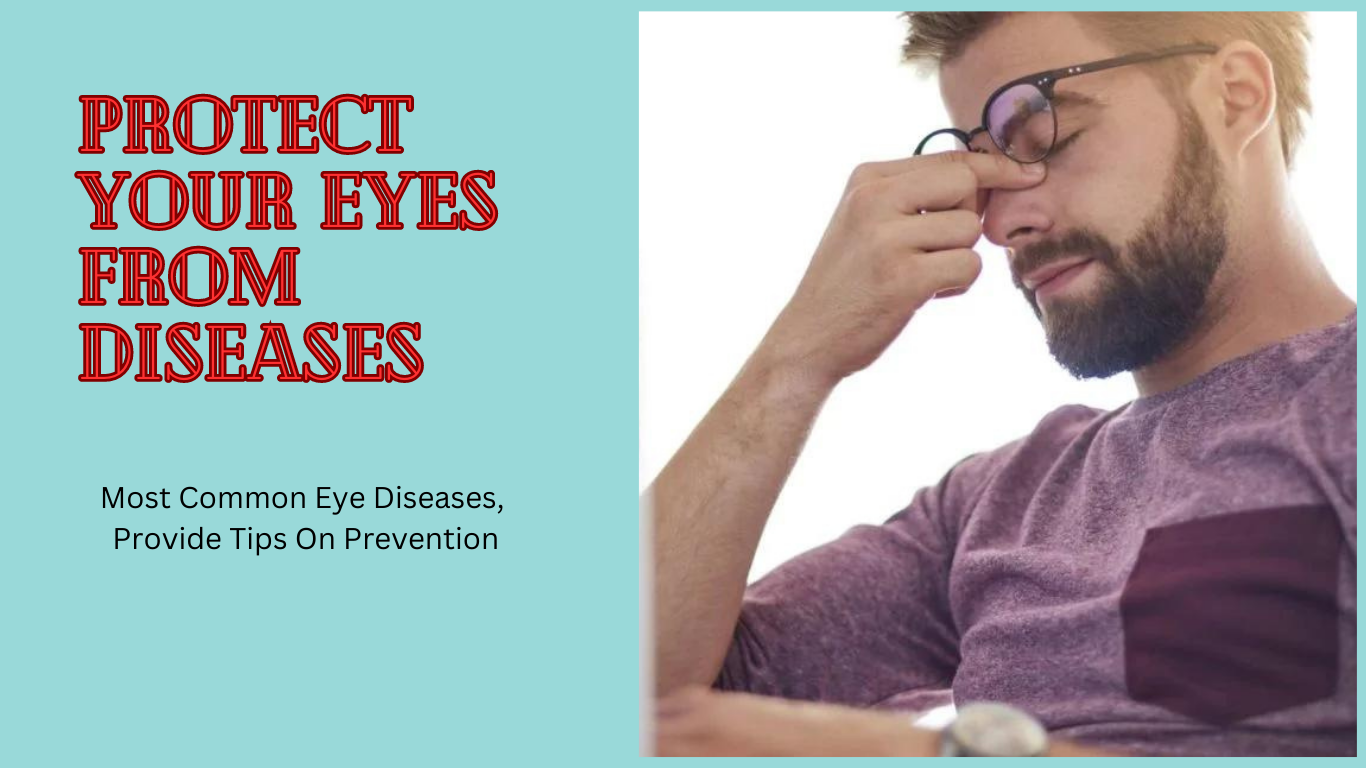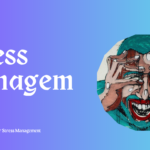Steps to Protect Your Eyes from Common Diseases

14 August 2023
Welcome to our blog post on how to protect your eyes from common diseases! Our eyes are one of the most vital organs in our body, allowing us to see and experience the world around us. However, they can be susceptible to various diseases that can significantly affect our vision and overall eye health. The good news is that there are steps you can take to prevent these eye diseases and maintain optimal eye health. In this post, we will discuss the three most common eye diseases, provide tips on prevention, highlight signs and symptoms to watch out for, and offer guidance on when it’s crucial to seek medical attention. So let’s dive right in and learn how you can safeguard your precious eyesight!
The Three Most Common Eye Diseases
The health of our eyes is something we often take for granted until a problem arises. Understanding the three most common eye diseases can help us better protect our vision and proactively address any potential issues.
- Cataracts: This condition affects millions of people worldwide and occurs when the lens of the eye becomes cloudy, leading to blurred or hazy vision. It’s commonly associated with aging but can also be caused by factors such as smoking, diabetes, or prolonged exposure to sunlight without protection. While cataracts are treatable through surgery, prevention measures like wearing sunglasses and eating a diet rich in antioxidants can help reduce the risk.
- Glaucoma: Often referred to as the “silent thief of sight,” glaucoma damages the optic nerve gradually over time and is typically linked to increased pressure within the eye. Unfortunately, symptoms may not appear until significant damage has occurred. Regular comprehensive eye exams are crucial for early detection and treatment options that include medication, laser therapy, or surgery.
- Age-related macular degeneration (AMD): As one of the leading causes of severe vision loss in adults over 60 years old, AMD affects central vision needed for tasks like reading or driving. There are two forms: dry AMD (gradual breakdown) and wet AMD (abnormal blood vessel growth). While there is no cure for AMD yet, certain lifestyle changes such as eating a nutrient-rich diet containing omega-3 fatty acids and quitting smoking may slow its progression.
By understanding these three prevalent eye diseases – cataracts, glaucoma, and age-related macular degeneration – you’re taking an important step towards protecting your precious eyesight from potential harm! Stay tuned for our next section on how to prevent these diseases through proactive measures.
How to Protect Your Eyes From Diseases
Taking steps to protect your eyes from common diseases is essential for maintaining good eye health. Here are some simple yet effective ways to prevent eye diseases:
- Eat a Healthy Diet: Include foods rich in antioxidants, vitamins A, C, and E, omega-3 fatty acids, and zinc in your diet. These nutrients help protect the eyes from damage caused by free radicals and promote overall eye health.
- Protect Your Eyes From UV Rays: Wear sunglasses that block 100% of UVA and UVB rays whenever you’re outdoors. Prolonged exposure to sunlight can increase the risk of developing cataracts and other eye conditions.
- Take Regular Breaks During Screen Time: Staring at screens for extended periods can strain your eyes and contribute to digital eyestrain or computer vision syndrome. Remember to follow the 20-20-20 rule – every 20 minutes, look away from the screen at something 20 feet away for at least 20 seconds.
- Practice Good Hygiene: Wash your hands frequently before touching your eyes or applying any medications or cosmetics around them. This helps prevent infections that could lead to serious eye conditions.
- Get Regular Eye Exams: Schedule comprehensive eye exams with an optometrist or ophthalmologist at least once a year – even if you have no noticeable vision problems. Early detection of any potential issues allows for prompt treatment and better outcomes.
By following these preventive measures, you can significantly reduce the risk of developing common eye diseases and maintain optimal eye health throughout your life.
Signs and Symptoms of Eye Diseases
Recognizing the signs and symptoms of eye diseases is crucial for early detection and treatment. While different eye diseases may have varying symptoms, there are some common indications that should not be ignored.
One of the most noticeable signs is a change in vision. If you experience blurred or hazy vision, difficulty seeing at night, or sudden loss of vision in one or both eyes, it’s important to consult an eye doctor promptly. Additionally, if you find yourself squinting frequently or having trouble focusing on objects up close or far away, these could be red flags.
Eye pain or discomfort is another symptom that should raise concern. This can manifest as aching, burning, itching sensations in the eyes. It’s essential to pay attention to any persistent discomfort and seek medical attention if necessary.
Another potential sign is an increase in sensitivity to light. If you find yourself experiencing excessive glare from lights or sunlight causing discomfort and headaches, it could indicate an underlying issue.
Changes in color perception can also be indicative of certain eye diseases. Difficulty distinguishing between colors accurately may suggest a problem with your retina or optic nerve.
Additionally, keep an eye out for recurring episodes of double vision. Seeing two images instead of one can point towards various conditions affecting the muscles controlling your eyes’ movements.
It’s worth noting that some eye diseases may exhibit no obvious symptoms until they have progressed significantly. Regular comprehensive eye exams with an optometrist can help detect problems even before symptoms arise.
Remember: Early detection means early intervention! Don’t hesitate to seek professional advice if you notice any concerning signs related to your eyesight.
When to See a Doctor for an Eye Disease
Your eyes are precious, and taking care of them should be a top priority. While prevention is essential, it’s important to know when seeking professional help is necessary.
One indication that you should see a doctor for an eye disease is experiencing persistent eye pain or discomfort. This could be a sign of underlying issues such as glaucoma or conjunctivitis. Don’t ignore any changes in your vision either; if you notice sudden blurriness, double vision, or difficulty seeing at night, it’s time to schedule an appointment.
Another reason to seek medical attention is if you have redness or swelling in your eyes that lasts more than a few days. These symptoms can indicate infections like keratitis or uveitis which require immediate treatment.
In addition, if you’ve had any recent trauma to your eyes – whether from an accident or foreign object entering the eye – it’s crucial to get checked out by an ophthalmologist promptly.
Remember, early detection and intervention can make all the difference when it comes to preserving your sight. So don’t hesitate! If you’re experiencing any concerning symptoms related to your eyes, consult with a healthcare professional as soon as possible.
Stay vigilant about protecting your eyes and prioritize regular check-ups with professionals who specialize in eye health. By being proactive and seeking prompt medical attention when needed, we can maintain healthy vision for years to come!
Conclusion
Taking steps to protect your eyes from common diseases is essential for maintaining good eye health and preserving your vision. By following the preventative measures mentioned in this article, such as practicing good eye hygiene, wearing protective eyewear, eating a healthy diet rich in nutrients for the eyes, and scheduling regular eye exams with an optometrist or ophthalmologist, you can significantly reduce the risk of developing common eye diseases.
Remember to be mindful of any signs or symptoms of eye diseases and seek medical attention promptly if needed. Early diagnosis and treatment are crucial in preventing further damage to your eyesight.
By prioritizing your eye health and incorporating these simple yet effective strategies into your daily routine, you can enjoy clear vision and maintain optimal eye health for years to come. So start implementing these tips today and give your precious eyes the care they deserve!
Protect Your Eyes – Protect Your Vision!


